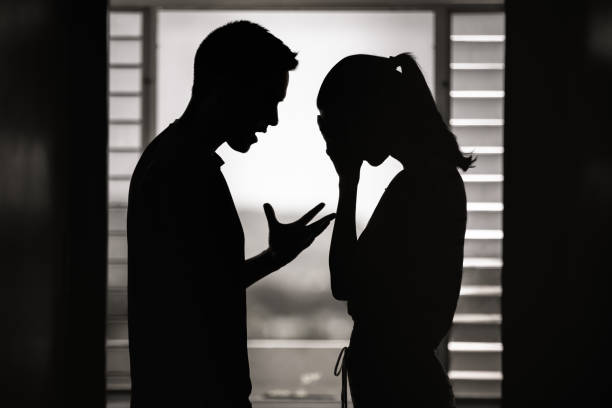You feel it before you can explain it.
That sharp jolt of discomfort when someone challenges your opinion. That subtle clenching in your jaw. The rush of defensiveness that rises up when a friend says you’re wrong, even gently. You might not even speak. But inside, something resists. Denies. Fights. The words come fast in your mind, rehearsed and certain: I know what I’m talking about.
This need to be right isn’t always loud. Often, it hides beneath smiles, shrugs, and silences. Sometimes, it erupts—heated debates at the dinner table, long comment wars on social media, marriages that die from the weight of unspoken arguments.
But it’s always there. Pulling. Tugging. Whispering, “Don’t back down.”
Why?
Why does being right feel so important—sometimes more important than connection, peace, or even truth?
To understand that, we have to go deeper than logic. We have to dive into the brain, the heart, and the fragile architecture of identity. We have to confront the fear beneath the fight.
Because the need to be right isn’t about knowledge.
It’s about safety.
The Brain’s Addiction to Certainty
From a neurological standpoint, certainty is soothing. The human brain is a prediction machine. It scans the world for patterns, builds models of what’s likely to happen, and then reacts accordingly. When things go as expected, the brain relaxes. When things defy prediction—when someone presents a contradictory idea or shatters our belief—it sounds an alarm.
Uncertainty is stressful. It triggers the amygdala, the fear center of the brain. It activates a stress response. Even if we’re not physically in danger, our body acts as though we are.
Being wrong doesn’t just threaten our opinions—it threatens our sense of control. And in a world that already feels unstable, letting go of what we think we know can feel like falling into chaos.
So the brain clings. Not because it’s arrogant. But because it’s scared.
This is why debates often feel like battles. The other person isn’t just disagreeing with us—they’re destabilizing us. They’re pressing against our neural need for safety. That’s why we raise our voices, interrupt, double down.
We’re not just defending a fact.
We’re defending our equilibrium.
The Ego and the Illusion of Infallibility
Beyond biology lies the ego—the fragile shell we build around our sense of self. The ego isn’t just vanity or pride. It’s the story we tell ourselves about who we are.
And few things are more threatening to that story than being wrong.
If I’m wrong, what does that say about me? Am I less intelligent? Less moral? Less credible? The ego turns mistakes into identity threats. It interprets errors not as learning opportunities, but as evidence of personal failure.
So we defend ourselves. Not always consciously. Sometimes with denial. Sometimes with sarcasm. Sometimes with silence. But always with fear.
This is why apologies are so difficult. Not because we lack empathy—but because to say “I was wrong” feels like self-erasure.
We confuse being wrong with being worthless.
And so, we reach for the armor of righteousness.
Childhood Scripts and the Need to Win
Our relationship with being right is shaped early—often in invisible ways.
Maybe you grew up in a house where love had to be earned by achievement. Where mistakes brought shame, and being “right” meant being praised. Maybe you had a parent who always had to win—who made you feel small when you questioned them. Maybe you were the quiet child who found power in knowledge. Or the overachiever who was only safe when you were perfect.
These early emotional blueprints carve deep grooves in our psyche. Over time, we internalize the belief that being right isn’t just good—it’s essential to survival.
And so we carry it forward. Into relationships. Into workplaces. Into politics and religion and parenting. We use our opinions like shields. Our knowledge like currency. Our correctness like oxygen.
Because somewhere, deep down, we learned that being wrong was dangerous.
Not just uncomfortable.
Dangerous.
Relationships: The Casualties of Being Right
In our closest relationships, the need to be right becomes most visible—and most painful.
You want to be understood. So does your partner. You see the world one way. They see it differently. And instead of curiosity, the fight begins. You both argue your side, believing that if you just explain it right, the other person will see it. But they don’t.
And slowly, something shifts. You stop listening. You start defending. You’re no longer two people trying to connect.
You’re two egos trying to win.
In the end, no one feels heard. No one feels loved. The conversation becomes a courtroom. The goal shifts from understanding to victory.
But relationships aren’t courtrooms. They’re not debates to be won. They’re mirrors, containers, sanctuaries. They thrive on humility, not dominance.
And yet, we keep choosing the comfort of certainty over the discomfort of growth.
We’d rather be right than close.
Until the loneliness creeps in.
Politics, Tribalism, and the Collapse of Dialogue
Nowhere is the need to be right more visible—and more toxic—than in the political and cultural wars tearing through modern life.
We don’t just disagree anymore. We dehumanize.
We assume that those who see the world differently are not just wrong, but evil. We create tribes not just around shared beliefs, but shared enemies. Our newsfeeds become echo chambers. Our conversations become landmines.
This isn’t just sad. It’s dangerous.
When the need to be right eclipses the need to understand, democracy weakens. Empathy dies. Compromise disappears.
And the irony?
Most people, deep down, want the same things: safety, dignity, purpose, love.
But we’ve been trained to believe that admitting someone else has a point is the same as betrayal.
So we hold fast to our truth.
Even as the world burns.
The Cost of Always Being Right
The cost of clinging to righteousness is often invisible—until it’s not.
It shows up in broken friendships. In long-held resentments. In families divided by silence. In brilliant people who can’t collaborate. In communities torn apart by dogma.
It shows up in the loneliness of the perfectionist. In the burnout of the “expert.” In the quiet heartbreak of someone who realizes they’ve spent their whole life defending ideas they never actually chose.
When we wrap our identity around always being right, we lose the ability to evolve. We stagnate. We calcify. We stop learning.
And learning, at its core, is a surrender.
It’s a willingness to say: Maybe I don’t know everything.
Maybe I never did.
The Art of Being Wrong
Here’s the secret:
Being wrong doesn’t mean you’re weak. It means you’re alive.
Some of the most profound growth in human history began with the words, “I was wrong.” Medicine advanced. Cultures changed. Scientists overturned centuries of false beliefs.
But more personally, being wrong is often the doorway to intimacy.
It’s when a parent apologizes to a child. When a friend says, “I didn’t understand before, but I’m listening now.” When a leader says, “We made a mistake, and we’ll do better.”
Those are the moments that build trust. That build bridges. That remind us: we’re not perfect, but we’re trying.
Being wrong is an act of courage.
It’s a declaration that truth matters more than pride.
Curiosity: The Antidote to Righteousness
If the need to be right is rooted in fear, then the path out must be rooted in love.
And love, in this context, looks like curiosity.
What if, instead of proving, we asked? What if, instead of defending, we explored? What if our conversations were less about converting and more about understanding?
Curiosity softens us. It loosens the grip of ego. It opens the door to other people’s experiences—not to agree with them blindly, but to see them fully.
And in that seeing, something shifts.
We realize we are not our opinions. We are not our arguments. We are not the sum of our correctness.
We are something much deeper. Much braver.
We are capable of change.
Healing the Fear Beneath the Fight
Ultimately, the need to be right is a cry for safety. For certainty. For dignity.
When we understand that, we can meet it not with shame, but with compassion.
We can notice the defensiveness rising in us and pause. We can ask: What am I protecting right now? Is it my identity? My worth? My past?
And then we can breathe.
We can allow for the terrifying possibility that we are not always right—and still completely lovable.
Because healing begins where certainty ends. And growth begins in the soil of humility.
The Beauty of Letting Go
Imagine a world where being wrong wasn’t shameful. Where it wasn’t weaponized or mocked. Where leaders admitted mistakes. Where families apologized. Where teachers said, “I don’t know.” Where lovers said, “Teach me.”
Imagine conversations where people weren’t trying to win—but trying to understand.
Imagine the relief.
Imagine how many wars could have been avoided. How many friendships could have been saved. How many lives could have been changed—if someone had just said, “Maybe I’m wrong.”
Letting go of being right isn’t giving up.
It’s growing up.
It’s saying: I’m more interested in becoming wise than being correct.
I’m more committed to connection than to control.
I’m more in love with learning than with leading.
Because in the end, no one is always right.
But anyone—at any moment—can choose to become more whole.






